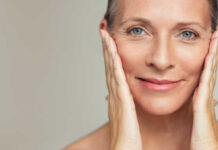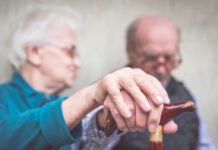
The term “physically fit” has become a common phrase in our modern health-conscious society. But do we truly understand what it means to be physically fit?
Is it about sporting well-defined muscles, running a marathon, or just maintaining a certain body weight?
Not exactly. It’s about a personalized state of health that allows us to live our lives to the fullest.
The Holistic View of Physical Fitness
Physical fitness represents a state of health that allows us to conduct daily tasks without undue fatigue, engage in leisure activities, and respond to emergencies. This dynamic state isn’t simply an absence of disease.
It’s a combination of various health aspects: strength, endurance, flexibility, and body composition.
Crucially, physical fitness is not a one-size-fits-all concept. It is deeply personalized and varies greatly depending on one’s lifestyle, preferences, and life goals.
A Personalized Approach to Physical Fitness
Often, we measure physical fitness against societal or age-related benchmarks, which can lead to misconceptions and undue pressure. To truly understand and embrace physical fitness, we need to adopt a more personalized approach.
Instead of focusing on comparative metrics (lifting a certain amount of weight, running a certain distance, or having a particular body shape), we should consider what allows us to navigate our lives successfully and comfortably.
Physical fitness should be assessed not just on traditional parameters, but also in terms of how equipped we are to fulfill our daily responsibilities, pursue our interests, and achieve our personal goals.
Here are some questions to consider for a more personalized understanding of your physical fitness:
● Can I carry out daily activities, like household chores or grocery shopping, without feeling drained?
● Do I have the energy and strength to participate in favorite activities or spontaneous adventures?
● Am I comfortable in performing essential tasks like preparing meals or tidying up, without feeling overwhelmed?
● Do I maintain steady energy levels and alertness throughout the day, or am I frequently fighting fatigue?
This approach gives a more accurate picture of your overall health and wellness, based on personal capabilities rather than just age-related or standardized measures.
Endurance for Everyday Life
Cardiovascular endurance is the ability of your heart, blood vessels, and lungs to work efficiently during prolonged physical activity. Having good cardiovascular endurance allows you to perform tasks for longer periods without getting tired.
But cardiovascular endurance is not necessarily about being able to run a marathon, but rather about having a heart, lungs, and blood vessels that efficiently support our daily activities and the things we enjoy. It’s about being able to engage in sustained physical activity without undue fatigue.
Strength and Flexibility for Personal Freedom
Strong muscles are not just for bodybuilders. They empower you to engage with your world confidently, whether that involves carrying groceries, playing with your kids, or pursuing hobbies like hiking or gardening.
Strength isn’t limited to your limbs either. Core strength is fundamental to your overall physical health. A strong core supports your spine, enhances balance and coordination, and facilitates virtually every movement you make, from mundane tasks to more dynamic activities.
Flexibility, on the other hand, isn’t about executing gymnastic feats but maintaining a healthy range of motion across our joints. This flexibility allows you to perform everyday activities with ease and contributes significantly to your mobility and independence.
Healthy Body Composition for Long-Term Health
Body composition refers to the proportions of fat, muscle, and bone in your body.
Maintaining a healthy body composition isn’t simply about looking a certain way. It’s about managing body fat percentages within healthy ranges to minimize the risk of chronic diseases and to maintain a high quality of life.
Physical fitness is a holistic, individualized concept that extends beyond age and aesthetic appearances. It’s about being capable, flexible, and strong enough to enjoy our lives and meet our personal goals.
Being physically fit is about creating a robust foundation for an active, healthy future, tailored to our unique needs and desires.



















